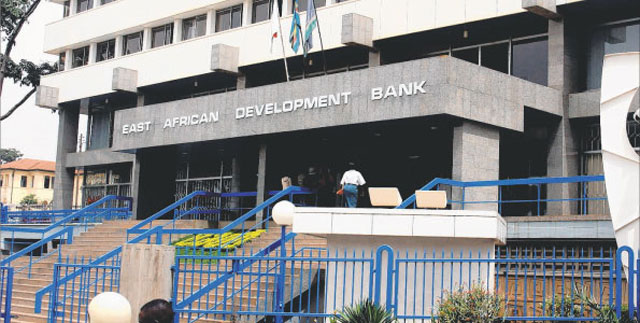How scammers are exploiting EADB’s name to steal from unsuspecting victims
The EADB has raised alarms about the fraudulent activities, warning the public to exercise caution. In a public notice, the bank clarified that it does not request payments for any of its programs and urged individuals to verify offers directly through its official website.

A sophisticated online scam has been uncovered, where con artists are exploiting the name of the East African Development Bank (EADB) to defraud individuals through fake business contracts, scholarships, and job opportunities.
The scammers use social media and other digital platforms to lure victims, requesting payments for processing these fictitious offers.
The EADB has raised alarms about the fraudulent activities, warning the public to exercise caution. In a public notice, the bank clarified that it does not request payments for any of its programs and urged individuals to verify offers directly through its official website.
“Members of the public are hereby advised to note that any communication or correspondence through social media or other media offering business contracts, scholarships, interviews, or employment, and requesting payment on behalf of the Bank, is fraudulent and does not originate from EADB,” the statement read.
How the scammers operate
The fraudsters employ sophisticated tactics to gain victims’ trust. These include creating fake social media profiles and websites that closely mimic the EADB’s branding.
They also use the names and logos of other reputable organizations to lend credibility to their schemes. Victims are often asked for payments disguised as processing fees or administrative costs, leading to significant financial losses.
Public response and concerns
The scam has sparked widespread concerns about the safety of online transactions. Victims have reported losing significant sums of money, with some being targeted multiple times. The situation has raised awareness about the need for vigilance when engaging with online offers, particularly those that sound too good to be true.
Financial analysts have highlighted the importance of organizations like the EADB proactively educating the public about potential scams. “This scam demonstrates how vulnerable people are to online fraud, especially when reputable institutions’ names are involved,” one expert noted.
EADB’s recommendations
To combat the growing threat, the EADB has provided the public with guidance on how to avoid falling victim to such scams:
- Verify authenticity: Cross-check offers with the EADB’s official communication channels or website.
- Avoid unsolicited offers: Be cautious about unsolicited messages promising lucrative opportunities.
- Guard personal information: Never share personal or financial details in response to unsolicited emails or messages.
- Report suspicious activity: Inform the nearest law enforcement agency if you suspect fraud.
- Update security measures: Regularly update software and use strong passwords to protect online accounts.
In its statement, the EADB urged everyone to be vigilant and report any suspicious activity. “We urge members of the public to be cautious and to verify the authenticity of any offers they receive on social media,” the bank said.
The rise of such scams emphasizes the need for individuals and organizations alike to stay informed and proactive in addressing cyber fraud. As digital transactions continue to grow, so too must efforts to ensure they remain secure.
This scam also serves as a reminder for individuals to think critically before making payments or sharing sensitive information online.






